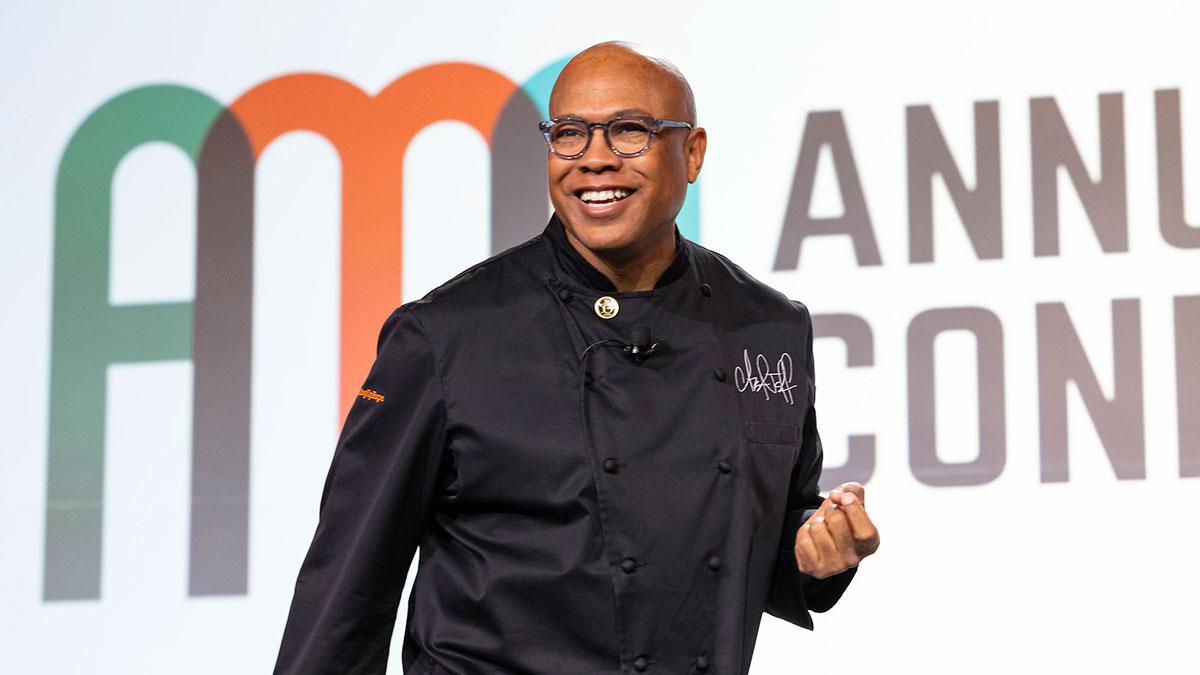By: Mark Baum, Senior Vice President of Industry Relations Chief Collaboration Officer, Food Marketing Institute

The startup mentality is calculated when it comes to risk taking; it’s this confidence that gives a startup a scrappy persona and an optimism that doesn’t appear afraid to fail. Trend spotters suggest that food startups are on the rise, which the grocery industry can attest to firsthand, but speed-to-market is arguably an attribute that has never been at the fingertips of many food retailers. Still, if our industry can keep pace with the demand for ecommerce, then it stands to reason that we can in turn keep pace with the behavior of our shoppers and create a more startup-like culture and attitude.
It’s estimated that in the current climate of technology adoption and evolution, consumer’s online grocery shopping could reach $100 billion by 2025, the equivalent of 3,900 grocery stores based on store volume. This growth curve for ecommerce within the grocery industry – perhaps the last battleground when it comes to ecommerce, with all of its attendant and profound implications – is best embodied by our recent announcement on a new partnership with Shoptalk, an unprecedented platform for retailers of all sizes; national, local, and private brands; venture-backed food and related startups; tech and Internet companies, investors, media, analysts and others to come together in an open, friendly and dynamic environment to learn, collaborate and evolve. The founder of Shoptalk, Anil Aggarwal, brings the kind of entrepreneurial attitude and outlook to help us execute our concept, “Grocerytalk”, as we bring nimbleness and innovation to the grocery and consumer packaged goods industry to create something new.
As FMI builds the venue, food retailers need not look far for inspiration in how to best capitalize on a startup culture within their own companies. For example, food retailers already offer flexible schedules, similar to the trend in corporate culture we're witnessing in other industries where employees are given more control over their own workdays. Areas of improvement could be small - such as morphing the typical break room into more of an entertainment or cultural center – a place that that brings employees together and encourage conversation and interaction. Associates could have more opportunities to have fun at work - inspiring new dialogs between the customers and the grocery employees.
Another way food retailers can enhance the entrepreneurial spirit of their brands is to follow lifestyle trends. Food, beverage and health and beauty care products are popular in the startup community, and since grocers are already embracing more artisan and local suppliers, these companies are arguably a natural fit. According to the 2017 FMI U.S. Grocery Shopper Trends analysis, 94 percent of consumers purchase locally grown products at least occasionally.
In thinking like a dynamic startup, grocers can maintain certain agility in order to meet demands for new shopping and customer communication channels; they can attract a younger generation of workers; and they can identify new and exciting products that appeal to shopper demand for local or hand-crafted or other value-added products. Omnichannel opportunities help food retailers embrace the tech-driven information age, finding new ways to delight their customers. These are just a few idea starters to consider in the new and rapidly evolving era of connected commerce
We look forward to continuing the conversation at Grocerytalk in 2018.


 Industry Topics address your specific area of expertise with resources, reports, events and more.
Industry Topics address your specific area of expertise with resources, reports, events and more.
 Our Research covers consumer behavior and retail operation benchmarks so you can make informed business decisions.
Our Research covers consumer behavior and retail operation benchmarks so you can make informed business decisions.
 Events and Education including online and in-person help you advance your food retail career.
Events and Education including online and in-person help you advance your food retail career.
 Food Safety training, resources and guidance that help you create a company food safety culture.
Food Safety training, resources and guidance that help you create a company food safety culture.
 Government Affairs work — federal and state — on the latest food industry policy, regulatory and legislative issues.
Government Affairs work — federal and state — on the latest food industry policy, regulatory and legislative issues.
 Get Involved. From industry awards to newsletters and committees, these resources help you take advantage of your membership.
Get Involved. From industry awards to newsletters and committees, these resources help you take advantage of your membership.
 Best practices, guidance documents, infographics, signage and more for the food industry on the COVID-19 pandemic.
Best practices, guidance documents, infographics, signage and more for the food industry on the COVID-19 pandemic.
